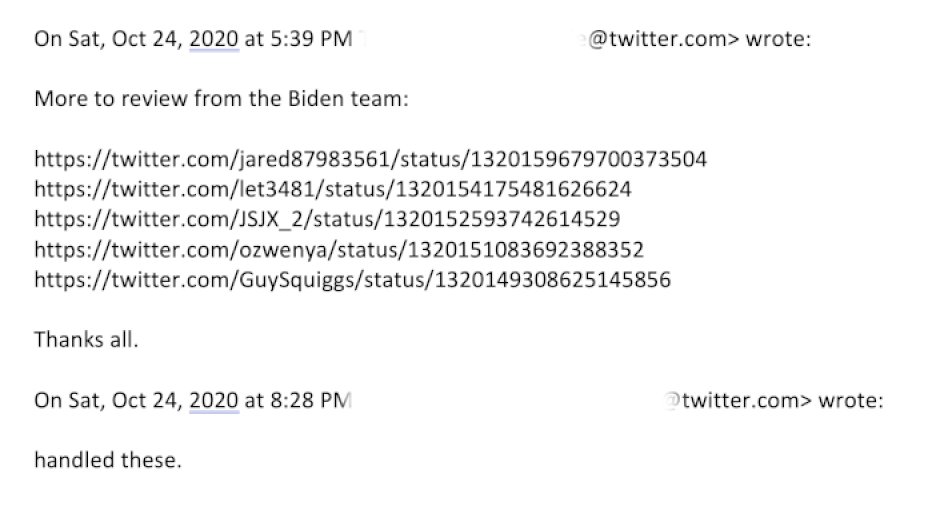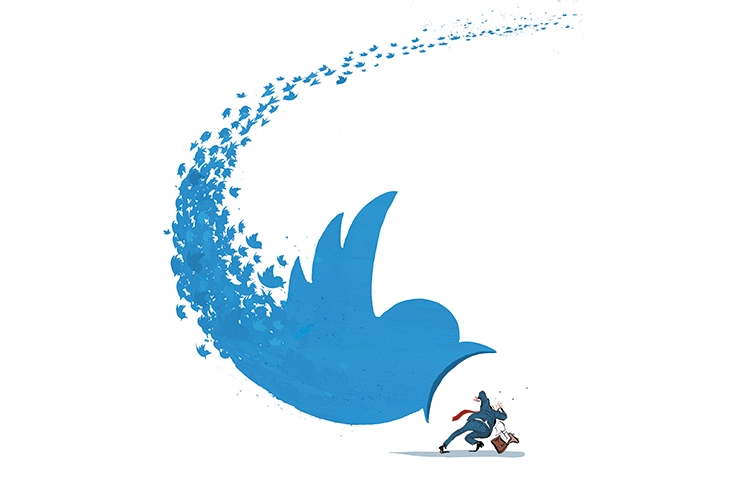For weeks now, Twitter’s new chief Elon Musk has been promising to reveal what really happened behind the scenes at the social media platform in the run up to the 2020 presidential election.
Well, yesterday, Musk did — through the journalist Matt Taibbi. It’s a big story, one that free speech supporters everywhere should take seriously. What happened at Twitter in 2020 shows how easily concern about “safety” can, under political pressure, morph into corruption and censorship.
Taibbi, apparently directed by Musk, has released a long Twitter “thread” citing company emails which show how the website colluded with political actors to censor sensitive information in the run up to the 2020 election. The most shocking document is this one:

What that message suggests is that Joe Biden’s campaign would flag content it didn’t approve of and Twitter would simply “handle” — i.e. suppress — it.
This wasn’t purely a case of the Democratic Party pulling the strings — requests from Donald Trump’s team were also ‘received and honored,” according to Taibbi.
But the “Twitter files” show that Twitter staff were clearly much more in favor of Team Biden than Team Trump. This was reflected in the way content was moderated and controlled — most spectacularly in the case of the New York Post’s Hunter Biden laptop story.
On October 14, 2020, less than a month before election day, the Post published “BIDEN’S SECRET EMAILS”: an exposé that used files obtained from Hunter Biden’s laptop and which suggested that “the big guy” — possibly Joe Biden, the man running to be president — may have been involved in his son’s business dealings.
As Taibbi relates, Twitter treated the story as if it were child pornography — even blocking transmission via direct message. They also locked down the account of the then-White House spokeswoman Kayleigh McEnany because she tweeted the story.
The spurious grounds for these extreme steps were that the Post story may have used illegally “hacked material.” After the 2016 election, when the wrong team won, Big Tech executives had come under severe pressure to clamp down on supposed “foreign interference” in domestic elections.
But this was a fudge at best and senior executives at Twitter — though not, apparently, the then-CEO Jack Dorsey — knew it. Still, they went ahead and suppressed the news anyway.
One employee, Trenton Kennedy, wrote, “I’m struggling to understand the policy basis for marking this as unsafe… we’ll face hard questions on this if we don’t have some kind of solid reasoning for marking the link unsafe.”
It’s interesting that Kennedy there seems uninterested in asking whether Twitter should or should not be engaging in blatant political censorship. What concerns him is the possibility of having to face “hard questions” about the blatantness of the political censorship. As Taibbi puts it, brilliantly, by this point “the response was essentially to err on the side of… continuing to err.”
Perhaps the most disturbing part of Taibbi’s revelations is that they aren’t that surprising. Everybody knew that Twitter covered up a story that may have harmed Joe Biden. It’s just now we can see the evidence — and for that we should thank Twitter’s unorthodox new owner.
This article was originally published on The Spectator’s UK website.


















